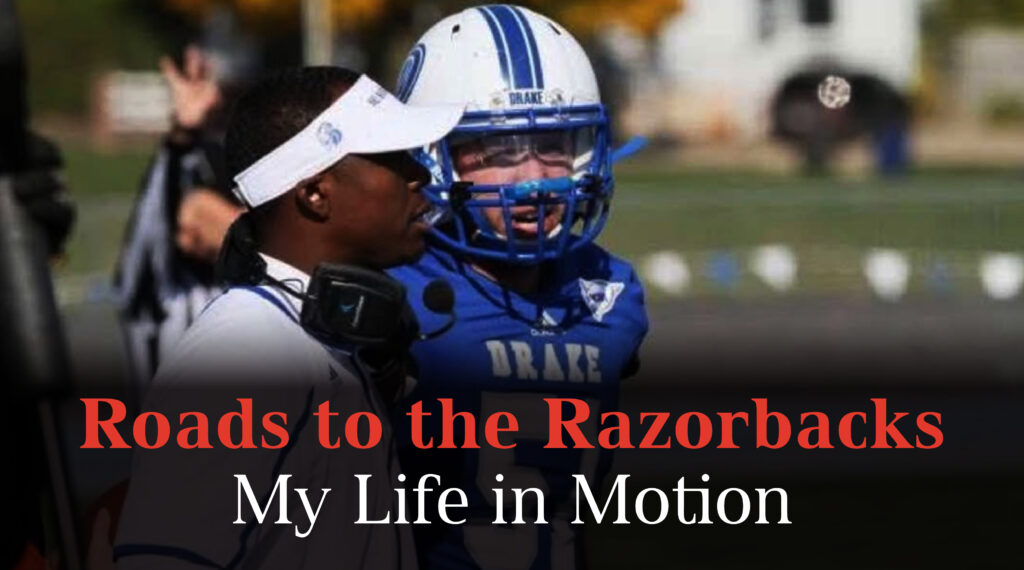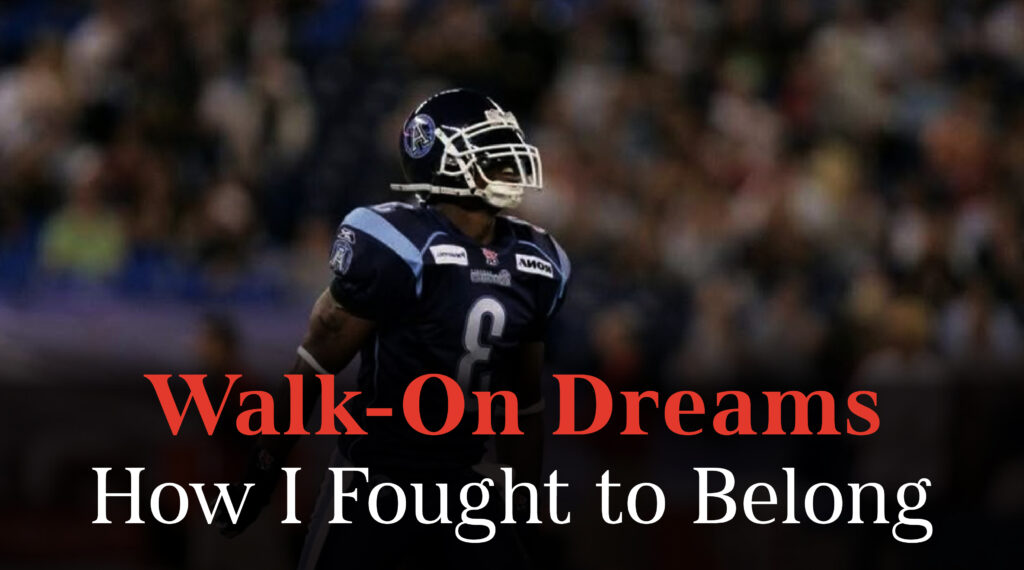In the high-stakes world of professional sports and leadership, the pursuit of fame and fortune often takes center stage. Athletes and coaches alike dedicate countless hours to perfecting their craft, chasing accolades, and securing lucrative contracts. However, beneath the glittering surface of championships and endorsements lies a fundamental truth that transcends the scoreboard: relationships are the true currency of a meaningful life. Kahlil Carter, a seasoned football coach and former professional athlete, exemplifies this principle through his remarkable career and personal philosophy, demonstrating why the bonds we forge outweigh fleeting recognition or material wealth.
Kahlil Carter’s journey—from a standout player in the NFL, NFL Europe, Arena Football League (AFL), and Canadian Football League (CFL) to a respected coach shaping champions—offers a compelling case study in prioritizing relationships over superficial success. With a career that includes leading teams to back-to-back championships in 2011 and 2012, mentoring 21 All-League players, and earning a spot on the AFL’s All-Anniversary Team in 2007, Carter’s accomplishments are undeniable. Yet, he asserts that the essence of his success lies not in trophies or titles, but in the locker room camaraderie and lifelong connections forged along the way. This perspective, articulated in his book The iN Crowd: Life, Legacy, Leadership, challenges the conventional narrative and underscores the enduring value of human connection.
The Foundation of Success
In the corporate and athletic arenas, results often define worth. Metrics such as wins, revenue, or individual accolades dominate performance evaluations. However, Kahlil Carter emphasizes a different metric—one that measures the strength of relationships. “The game of football is about relationships,” he writes, “not about fame, not about money, not about any of those things. It’s about the bonds formed with the individuals in the locker room that extend far beyond the field.” This philosophy reflects a profound understanding that while fame and fortune are transient, the trust and support of teammates, colleagues, and mentors endure.
Carter’s career bears witness to this truth. As a player, he earned All-League honors four times and was named Defensive Player of the Year in 2003, achievements that could have fueled a pursuit of personal glory. Instead, he credits his teammates for making “every moment of playing the game truly worthwhile.” As a coach, his ability to connect with players—whether 4th graders at a youth camp
or seasoned professionals in the CFL—has been lauded by peers like Gary Swenson, who notes, “Kahlil has an uncommon ability to teach the game and relate to players on a personal level.” This relational approach not only enhances performance but also builds a legacy that outlasts any single season.
In a corporate context, this principle translates seamlessly. Organizations thrive when leaders foster collaboration and mutual respect rather than focusing solely on profit margins or individual recognition. Employees who feel valued and connected are more engaged, productive, and loyal—outcomes that no amount of financial incentive can fully replicate. Kahlil Carter’s emphasis on relationships serves as a reminder that success, whether on the field or in the boardroom, is a collective endeavor rooted in human connection.
The Fleeting Nature of Fame and Fortune
Fame and fortune, while alluring, are inherently unstable. Kahlil Carter’s own experiences highlight their impermanence. As a player, he broke barriers by transitioning from the AF2 to the Buffalo Bills in 2003—an achievement that brought him into the NFL spotlight. Yet, an injury during a flag football game derailed his NFL trajectory, a stark reminder that external rewards can vanish in an instant. Reflecting on this, Carter notes, “Football does not love you back… it continuously demands from us until it decides our time is up.” This sobering reality underscores why anchoring one’s identity in fame or wealth is a precarious choice.
In contrast, relationships provide a stable foundation. Carter’s bonds with teammates sustained him through career highs and lows, offering support that fame could not. As a coach, his mentorship of players like Tanner Varner—who praised Carter’s willingness to “do anything for me” beyond football—illustrates how relationships yield dividends that transcend material gain. In the corporate sphere, this lesson is equally pertinent: a leader’s influence endures through the trust and loyalty they cultivate, not the size of their paycheck or the headlines they generate.
The volatility of fame and fortune also carries a psychological toll. Studies consistently show that individuals who prioritize extrinsic rewards—such as money or status—report lower levels of satisfaction and well-being compared to those who value intrinsic goals like relationships and personal growth. Kahlil Carter’s journey reflects this wisdom, as he shifted his focus from chasing the next big contract to building a legacy of impact through connection and service.
Relationships as a Catalyst for Growth
Beyond stability, relationships serve as a powerful catalyst for personal and professional development. Kahlil Carter’s career is replete with examples of how mentors and peers shaped his path. Coaches like Pinball Clemons, who instilled the value of relationships, and Gary Swenson, who praised Carter’s adaptability, provided guidance that honed his skills and character. These interactions were not merely transactional; they were transformative, equipping Carter to excel as both a player and a leader.
Carter extends this principle to his players, prioritizing their growth as individuals over their athletic output. His SWAAG philosophy—Students Working toward Academic and Athletic Greatness, Serving a Wonderful and Amazing God, and wearing confidence with style—embodies a holistic approach that nurtures young men beyond the game. “I am committed to helping them become not only better players but also better individuals,” he asserts, a commitment echoed by players who continue to seek his advice years after leaving his teams.
In a professional setting, this relational investment fosters innovation and resilience. Teams that trust one another are more willing to take risks, share ideas, and rebound from setbacks—qualities that drive long-term success. Kahlil Carter’s ability to connect with diverse groups, from high school athletes to CFL professionals, demonstrates how relationships unlock potential that fame and fortune alone cannot access.
The Legacy of Connection
Ultimately, the true measure of a life well-lived lies in its legacy. Kahlil Carter’s story is a testament to the enduring impact of relationships. While his championships and accolades are impressive, it is his influence on others that defines his contribution. “Even if one never wins a championship but gains a hundred friends, they can genuinely be considered champions,” he writes, encapsulating a vision of success that prioritizes people over podiums.
This legacy extends to his family, where Carter has recalibrated his priorities to be present for his wife and daughters. Stepping away from coaching to focus on home life allowed him to strengthen these bonds, a decision he deems more valuable than any professional accolade. “No amount of money can buy the time and attention I can give them,” he reflects, highlighting the irreplaceable nature of familial relationships.
For organizations and individuals alike, this perspective offers a roadmap to lasting impact. Leaders who invest in their teams—mentoring, supporting, and building trust—leave behind a legacy that outlives their tenure. Kahlil Carter’s career, marked by 12 years of coaching excellence and a playing résumé that spans continents, is proof that relationships, not fame or fortune, are the bedrock of a meaningful life.
Conclusion
In the game of life, the temptation to chase fame and fortune is ever-present. Yet, as Kahlil Carter’s journey illustrates, these pursuits pale in comparison to the richness of relationships. His philosophy, forged through decades of triumphs and trials, challenges us to rethink success—not as a solo endeavor measured in dollars or headlines, but as a collective victory won through connection. Whether leading a team to a championship or guiding a young athlete toward greatness, Carter’s legacy reminds us that the bonds we build are the ultimate prize. In a world obsessed with the spotlight, choosing relationships over fleeting rewards is the winning play that ensures we thrive, both on and off the field.


